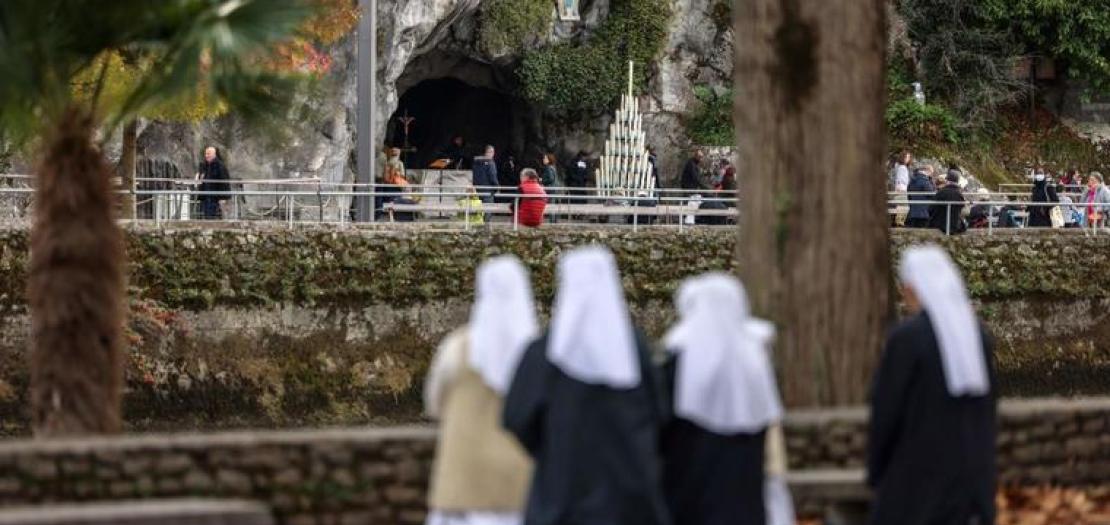Issued by the Catholic Center for Studies and Media - Jordan. Editor-in-chief Fr. Rif'at Bader - موقع أبونا abouna.org

Hate crimes against Christians are on the rise in Europe. In a 2024 report, the Observatory on Intolerance and Discrimination Against Christians in Europe (OIDAC Europe) documented a significant increase in these hate crimes. The hate crimes more than tripled from 2022 to 2023 across 35 different European countries.
Using police data and civil society statistics, OIDAC Europe identified 2,444 anti-Christian hate crimes in 2023. In 2022, that number was only 749 incidents. The countries with the most hate crimes included France, the United Kingdom, Germany, Poland, Italy, Spain, and Austria. The most documented type of hate crime was vandalism, which consisted of 62 per cent of the crimes.
The anti-Christian hate crimes ranged in severity, from vandalism to serious physical violence and aggression. One example was when a jihadist terrorist murdered an altar server and injured several people in two Catholic churches in Spain. Another example was when four Catholic churches were attacked in Paris, France, using arson and Molotov cocktails. In Poland, a man drove his car into a Corpus Christi procession of more than 100 people, injuring several people. Finally, OIDAC Europe noted that Germany alone had at least 2,000 cases of property damage to Christian worship sites in 2023.
These are just a few examples of the hate crimes that OIDAC Europe noted in its report. Per OIDAC Europe’s report, the increase in anti-Christian hate crimes from 2022 to 2023 shows a new rise in hostility towards Christianity across Europe.
New ACN report: Persecution of Christians has worsened around the globe
On the other hand, Aid to the Church in Need website has reported that persecution of Christians has worsened around the globe by getting on the rise.
Persecuted and Forgotten? A report on Christians oppressed for their Faith 2022-24 was launched in Dublin on Sunday November 17 by Archbishop Linus Neli of Imphal, India and Bishop Paul Demosey of Dublin Archdiocese. It highlights the fact that Christian persecution has significantly worsened in most countries surveyed.
“Persecuted and Forgotten” provides global and regional analysis, examining the situation for Christians in 18 countries of key concern – from Nicaragua in Latin America to Myanmar in the Far East to Burkina Faso in West Africa – between summer 2022 and summer 2024.
Michael Kelly, Director of Public Affairs for ACN Ireland described the report as “a sobering read”.
“You’d think in the 21st Century that persecution against Christians would be a thing of the past, our research shows that it is very much a current reality for millions of Christians around the globe,” he said.
Mr. Kelly said the research underlines the importance of ACN’s role in advocating for persecuted Christians.
The report states that militant extremists were responsible for the increased persecution in all six African countries reviewed, indicating that “the epicenter of militant violence has shifted from the Middle East to Africa”. It goes on to explain: “Mass migration of Christian communities, triggered by militant attacks, has destabilized and disenfranchised them, raising questions about the long-term survival of the Church in key regions.”
Countries where Christian persecution and oppression has increased include world powers such as China and India, as well as Nigeria, Africa’s most populous country.
For the first time in the report’s 18-year history, Nicaragua is featured in response to extreme oppressive measures targeting Christians, notably the mass detention and expulsion of clergy. The report features first-hand testimonies from survivors of anti-Christian attacks, in addition to details of incidents based on information obtained from ACN’s local contacts.
Recurring themes in the report include the displacement of Christian communities following attacks by extremist groups and the forced marriage and conversion of Christian women and girls, as well as the kidnapping and intimidation of priests and the publication of derogatory content about Christianity in school textbooks.
Other highlights from the report include an upsurge in violent attacks on Christians in Pakistan triggered by blasphemy allegations and the detention of more than 850 people under anti-conversion laws in India.
Anti-Christian persecution has been perpetrated by both state and non-state actors, such as terrorist organizations, other groups of religious extremists and criminal gangs. The report states: “Authoritarian regimes, including those in China, Eritrea, India and Iran, ramped up repressive measures against Christians, either in the name of religious nationalism or state secularism/communism. The restrictions included tougher sentencing for alleged insults against state ideology, confiscation of places of worship, increased arrests of clergy and laity as well as longer periods of detention.”
Vietnam is the only country in the report where a slight improvement was noted, especially because of “steps taken to re-establish diplomatic ties” with the Vatican.







